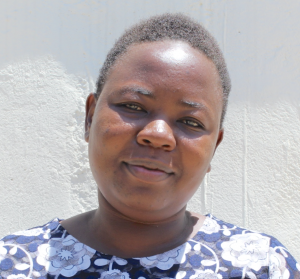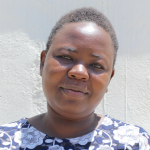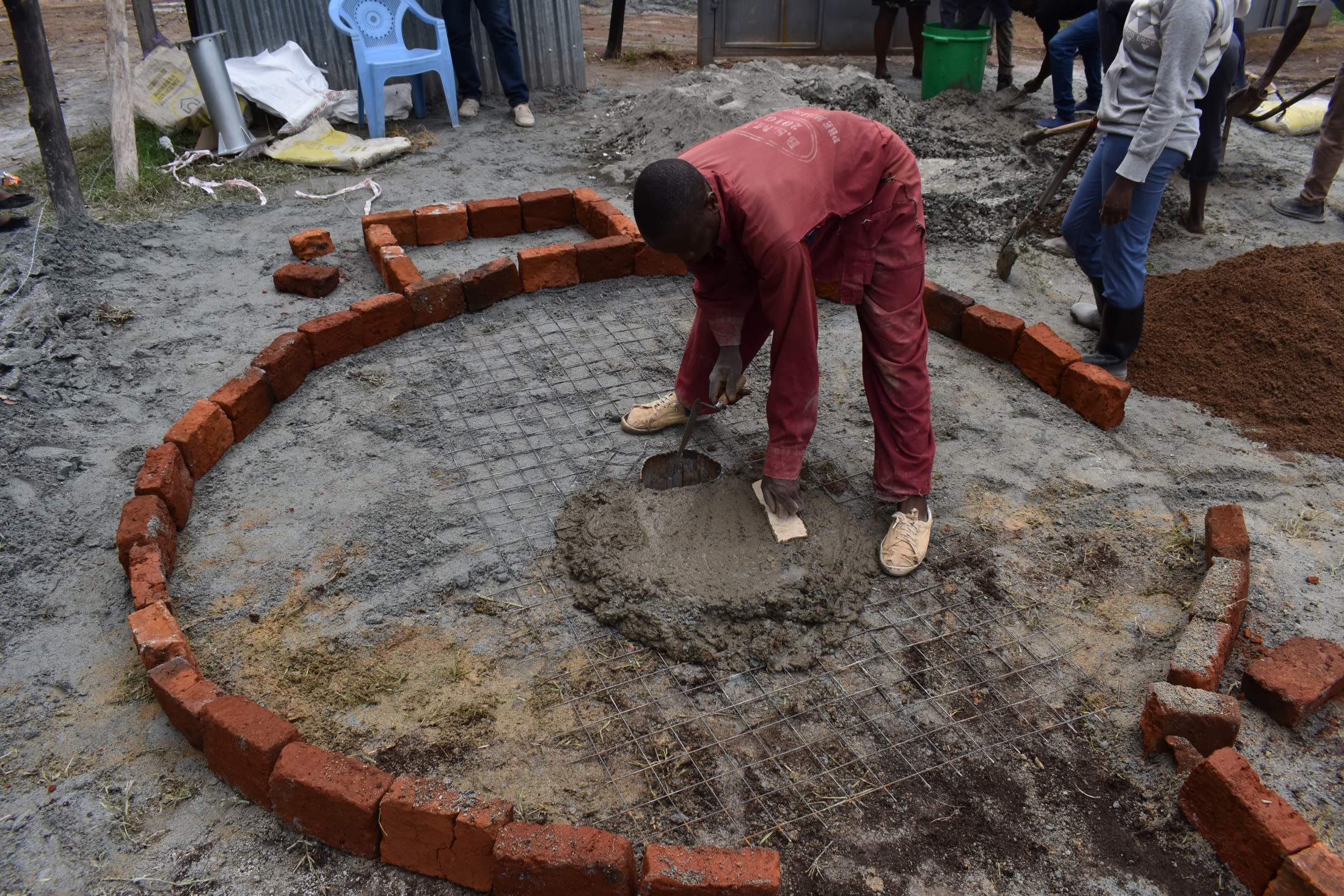When Elukho Secondary School was founded in 2019, the two rain tanks installed on the school grounds provided sufficient water for the school's 18 students. But now the school has 214 students and nine staff, and that number continues to grow every year, and the rain tanks are empty most of the time.
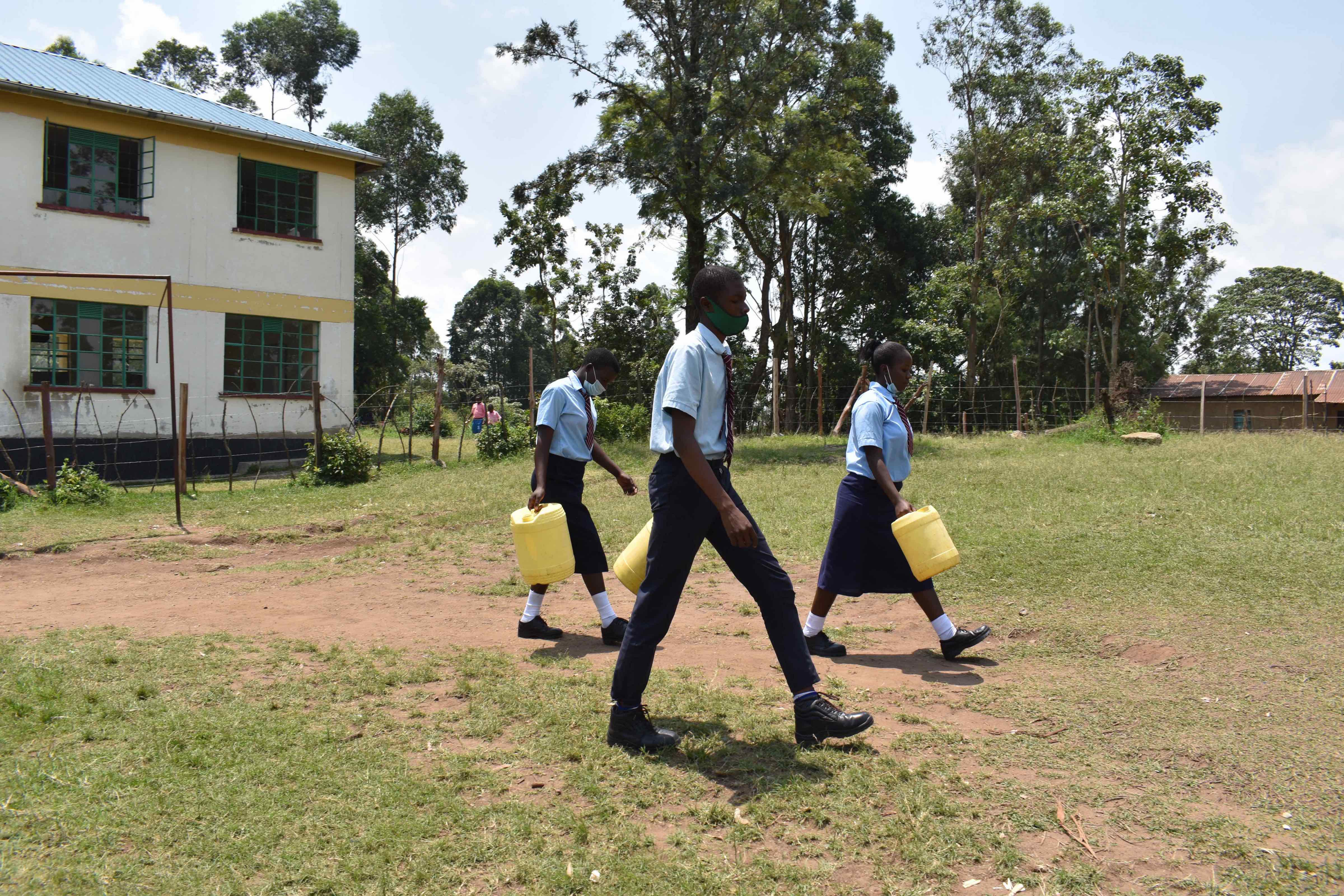
The only alternative water source is a spring that's a ten-minute walk away, across a busy road where reckless motorcyclists have been known to cause accidents. Students share this spring with neighboring community members, who feel they have a right to draw water first and can delay students in returning to their lessons when they fetch water in the morning and during lunch.
"We have not enough time to clear our syllabus and do revision (study). A lot of our precious time is wasted, which results in poor performance in our academics," said 17-year-old student Kelvin.
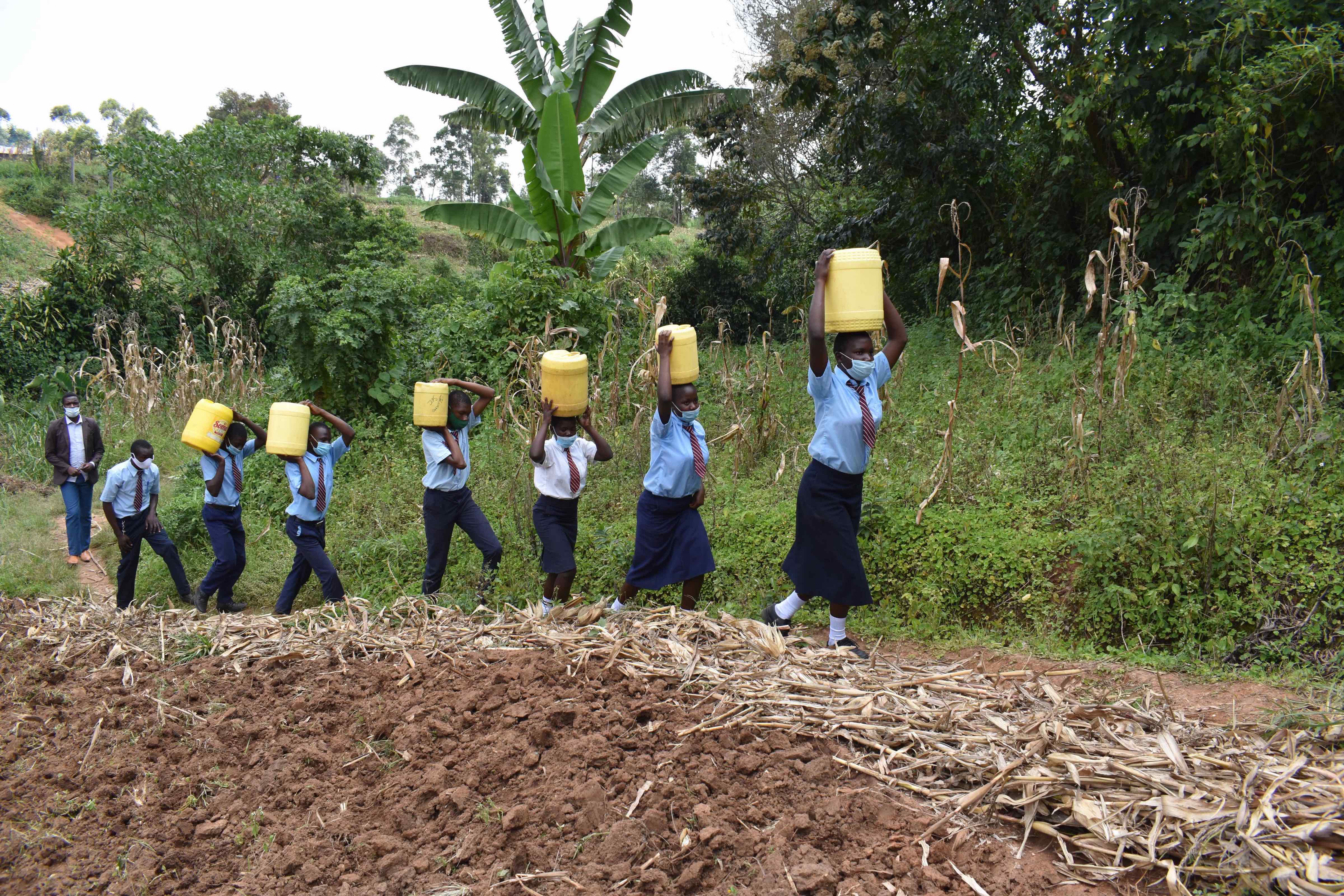
What makes this situation even worse is that the water from the spring has been contaminated by farming fertilizer and pesticides around the area that seeps into the spring when it rains.
Because of the water situation, the rate of absenteeism at the school is very high, which has the school administration worried. But students often complain of stomachaches, and without a better source of water to offer, attendance isn't expected to get better anytime soon.
"[I] am supposed to do follow-up [to make sure] all the students are back at school. To be specific, the girls," said teacher, Christopher Wangia. "Because in case of anything, we teachers are answerable to their parents and [the] government as well."
What We Can Do:
New Well
We conducted a hydrogeological survey at this school and the results indicated the water table beneath it is an ideal candidate for a borehole well. Due to a borehole well's unique ability to tap into a safe, year-round water column, it will be poised to serve all of the water needs for this school's large population, even through the dry months.
The school will help collect the needed construction materials such as sand, rocks, and water for mixing cement. They will also provide housing and meals for the work team, in addition to providing local laborers. We will complement their materials by providing an expert team of artisans and drilling professionals, tools, hardware, and the hand-pump. Once finished, water from the well will then be used by the school’s students and staff for drinking, handwashing, cooking, cleaning, and much more.
Handwashing Stations
The student health club will oversee the two new handwashing stations we will provide, and make sure they are kept clean and in working condition. The club leaders will fill the handwashing stations with water daily and make sure they are always supplied with a cleaning agent such as soap or ash.
VIP Latrines
We will construct two triple-door latrine blocks using local materials that the school will help gather. Three doors will serve the girls and three doors will serve the boys. All of these new latrines will have cement floors that are designed to be easy to use and to clean. And with a borehole right on school property, there should be enough water to keep them clean.
Training on Health, Hygiene, COVID-19, and More
We will hold a one-day intensive training session with students, teachers, and parents. This training will cover a wide range of topics including COVID-19 symptoms, transmission routes, and prevention; personal and environmental hygiene; and the operation and maintenance of the borehole, latrines, and handwashing stations. There will be a special emphasis on handwashing.
Our team of facilitators will use a variety of methods to train, including participatory hygiene and sanitation transformation, and asset-based community development. We will initiate a student health club, which will prepare students to lead other pupils into healthy habits at school and at home. We will also lead lectures, group discussions, and provide illustrative handouts to teach health topics and ways to promote good hygiene practices within the school including handwashing and water treatment. We will then conduct a series of follow-up trainings before transitioning to our regularly scheduled support visits throughout the year.
We and the school strongly believe that all of these components will work together to improve standards at this school, which will help lead to better student academic performance and will help unlock the opportunity for these students to live better, healthier lives.





 Borehole Well and Hand Pump
Borehole Well and Hand Pump
 Rehabilitation Project
Rehabilitation Project












